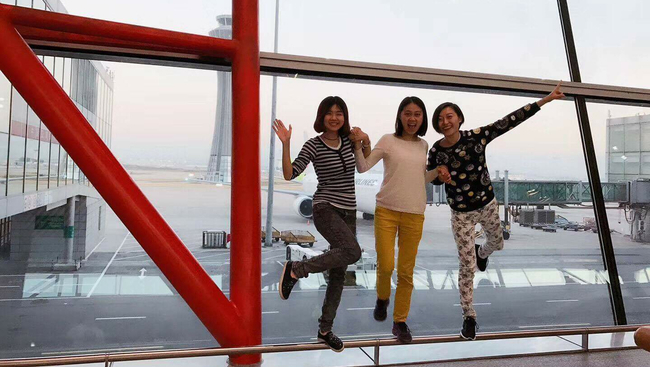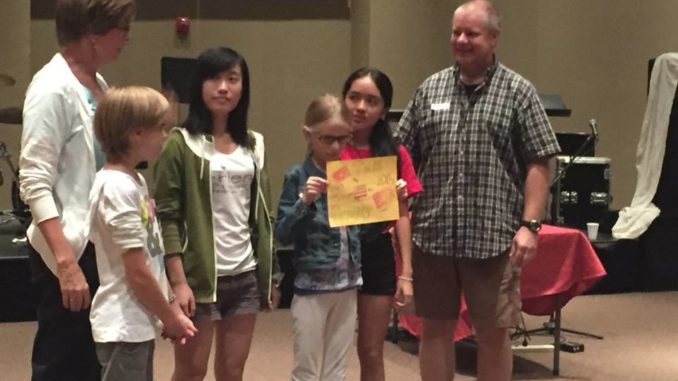
Traveling from 45 different countries, many international students come to Truman State University to receive a quality education and get a taste of American culture.
International Friends, a program under the Center for International Students (CIS) aims to help those students—just 400 of the 6,000 students on campus—adjust to life in Kirksville by pairing them with an American family.
“I think the main objective of programs like this is to increase diversity in the towns, especially in small towns like Kirksville,” says Jace Galang, International Friends student worker.
The program also hosts events like picnics where students and their American families can meet, exchange contact information and play games. Senior Aya Terakawa, a Korean and Japanese student, says she was nervous the first time she met her American family. She was paired with Econ professor, Justin Jarvis and his family.
“In the beginning I am worried about like I am international student and they are Americans but when I saw them, everything is just disappeared. They are just cute children and nice people, my worry is unnecessary,” says Terakawa.
Over the course of a semester, the student is able to get to know their family and learn about American traditions and home life. Many participating families invite their student over for dinner, especially during the holidays.
“I think I learned a lot about American holidays especially, because they will invite me for Thanksgiving dinner and Christmas dinner,” says Terakawa. “[M]ost American students go back home to spend time with their family, but we are alone here. But Dr. Jarvis invited me to their house for dinner and we cook food together, that’s warmed my heart.”
The families who are paired with international students get just as much out of the program as the students do. Academic advisor, Aaron Rooks says he and his family have participated in the program for two years and have been officially paired with five international students. But through all the students he’s been paired with, he’s also built relationships with their friends.
When his family is paired with a student, Rooks says they like to focus on food.
“We’ve tried to cook for the students, and they’ve come over to cook for us,” says Rooks. “I’ll say there’s four or five recipes that we now cook regularly—that we’ve incorporated into our meal rotation.”
Galang says the program provides people in the community the ability to meet kids from other countries, which helps expand opinions and open minds through the sharing of cultures and experiences.
Courtney Truong, also a student worker for International Friends, says inclusion is just as important as diversity. Even with a more diverse campus, she says she sees a lot of international students hanging apart from American students. Although it’s natural for people with similar backgrounds to seek each other out and stick together, she says she thinks programs like International Friends is a small way to break down barriers.
Anthropology professor Anton Daughters says welcoming and including foreign students into Truman’s campus life helps young American students see past stereotypes.
“The best way to break down misconceptions about other cultures is when you’re learning through direct one-on-one personal interactions about someone else’s life,” says Daughters. “So what’s nice about this [the International Friends program] is that it’s personal, it’s direct contact. That’s the best way to humanize other cultures.”
Direct contact may not break down barriers immediately but it will lead to a better understanding of what life is like in another culture, explains Daughters.
Though a small, rural town in northern Missouri may not seem like the most open or diverse place, many think both the Truman and Kirksville communities are friendly, courteous and welcoming towards outsiders. Programs like International Friends still need to exist in order to help the community grow and be open to more diversity.
“I think the fact that you have 400 international students here in Kirksville, through Truman, it’s like a gem. It’s like a treasure trove of opportunity for cultural exchange,” says Daughters .
With the growing number of international students, CIS and International Friends would like to broaden the scope of where students come from. This semester, they plan to reach out to South American countries in hopes of increasing their representation.

